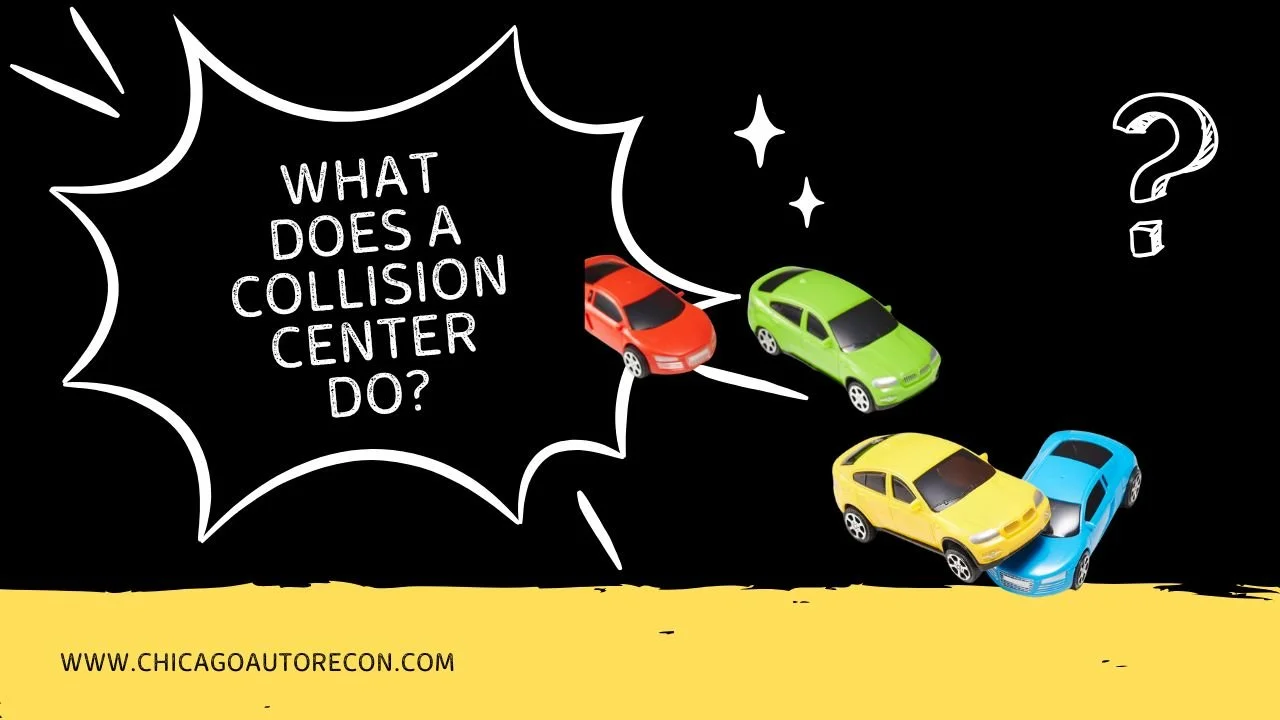Collision Center vs Body Shop: What’s the Real Difference?
After a car accident, your first instinct might be to search for help fast. But should you head to a collision center vs body shop? The terms are often used interchangeably, but they aren't the same, and choosing the right one can save you time, money, and stress.
Let’s break it down simply so you know where to go when your car needs repair.
What Is a Body Shop for Cars?
A body shop (also called an auto body shop, body shop auto, or car body shop) specialises in cosmetic repairs to a vehicle’s exterior. This includes fixing dents, scratches, paint jobs, and minor accident damage.
Common Services Offered by Body Shops:
Paint restoration and colour matching
Panel replacement
Windshield and glass repair
Bumper and fender fixes
If you’ve experienced a fender bender, scraped your bumper, or need a minor touch-up, a body shop car repair is your go-to solution.
What Does a Collision Center Do?
A collision center handles more serious vehicle damage, especially from major accidents. These facilities focus on both cosmetic and structural repairs, like frame realignment, airbag replacement, and complex mechanical bodywork.
Services Typically Handled by Collision Centers:
Structural damage repair
Frame straightening
Suspension repair
Crash diagnostics
Airbag system resets
Auto Body Shop vs Collision Center: Key Differences
| Feature | Body Shop | Collision Center |
|---|---|---|
| Type of Damage | Minor dents, scratches, and paint jobs | Major structural and mechanical damage |
| Insurance Involvement | Sometimes | Often required |
| Tools & Equipment | Basic body tools | Advanced crash-repair tech |
| Repair Time | 1–3 days (average) | 3–10 days or more |
✅ Choose a body shop for minor fixes and a collision center for serious post-accident work.
When Should You Go to a Collision Center vs Body Shop?
Here are common real-world examples:
| Scenario | Go To |
|---|---|
| Small scratch on the door | Body Shop |
| Cracked front bumper | Body Shop |
| Minor parking lot dent | Body Shop |
| Frame misalignment | Collision Center |
| Airbag deployment | Collision Center |
| Severe front-end collision | Collision Center |
If you’ve been in a major accident, it’s best to contact an auto collision repair shop that works directly with your insurance company.
How to Choose Between Local Shops and Collision Centers?
Here’s what to look for in a local car body shop or collision center:
✅ Checklist:
Certified by ASE or I-CAR
Positive reviews & reputation
Works with insurance providers
Offers a written warranty on work
Clear communication & estimates
Whether you're searching for a vehicle body shop or a collision auto repair center, always verify their credentials.
What Services Do They Share?
Some services overlap. For example, both facilities may offer:
Towing assistance
Diagnostic scanning
Insurance claim assistance
Auto accident repair
Paint jobs and detailing
What’s the Right Choice for You?
Still unsure? Here’s a quick takeaway:
✅ Choose a body shop if you need paint, dent, or panel work
✅ Choose a collision center for frame, structural, or mechanical damage
If you’re dealing with insurance, call ahead to confirm whether the shop is part of a collision center auto repair network or an independent body shop.
Conclusion
Understanding the difference between a collision center and a body shop isn’t just helpful, it’s essential after an accident. Whether you're dealing with minor scrapes or serious frame damage, choosing the right facility ensures proper repairs, insurance compliance, and long-term vehicle safety. Always verify shop certifications, get detailed estimates, and prioritize trusted professionals who specialise in your repair needs.
Don’t guess. Make informed choices—and protect your vehicle’s value and your peace of mind.
FAQs
-
A collision center is a specialised repair facility that restores vehicles after major accidents, including framework, suspension, and safety systems.
-
A mechanic focuses on engines and internal systems, while a collision center restores exterior and structural damage caused by crashes.
-
Body shops are ideal for cosmetic repairs. Dealerships are better for brand-specific fixes but may outsource collision work. Always compare pricing and certifications.
-
Not always. Some collision centers are preferred by insurers, but you’re free to choose your certified repair shop.
-
Yes. Collision repairs typically cost more due to advanced diagnostics, labour, and parts involved in restoring structural integrity.
